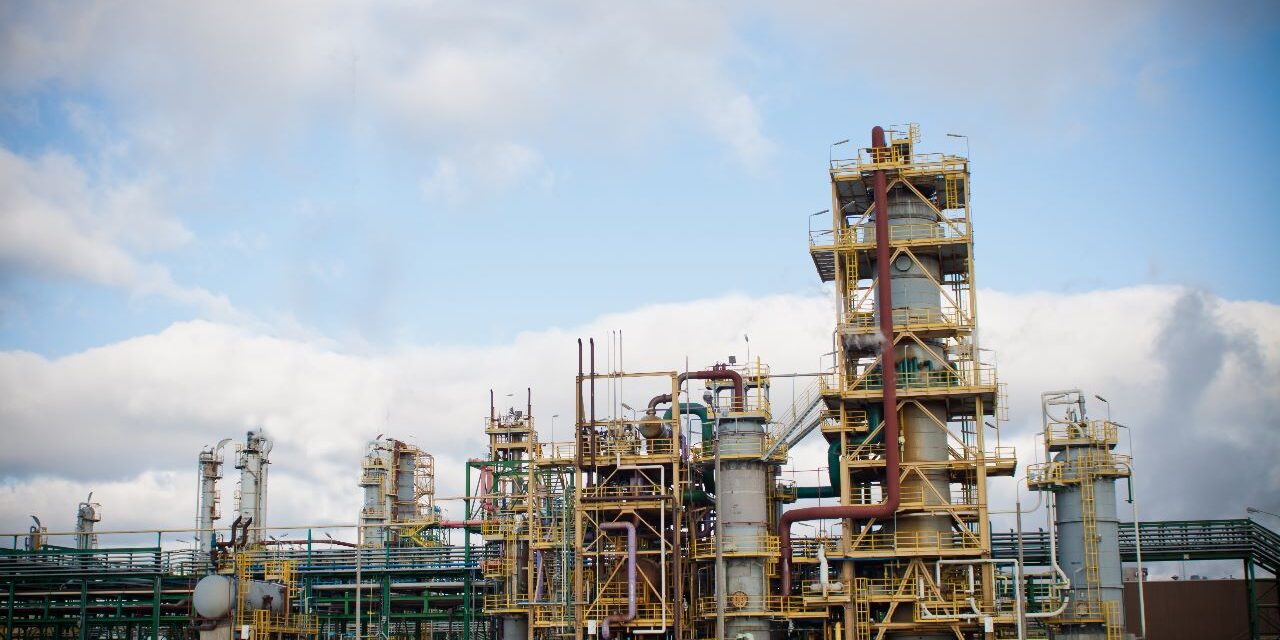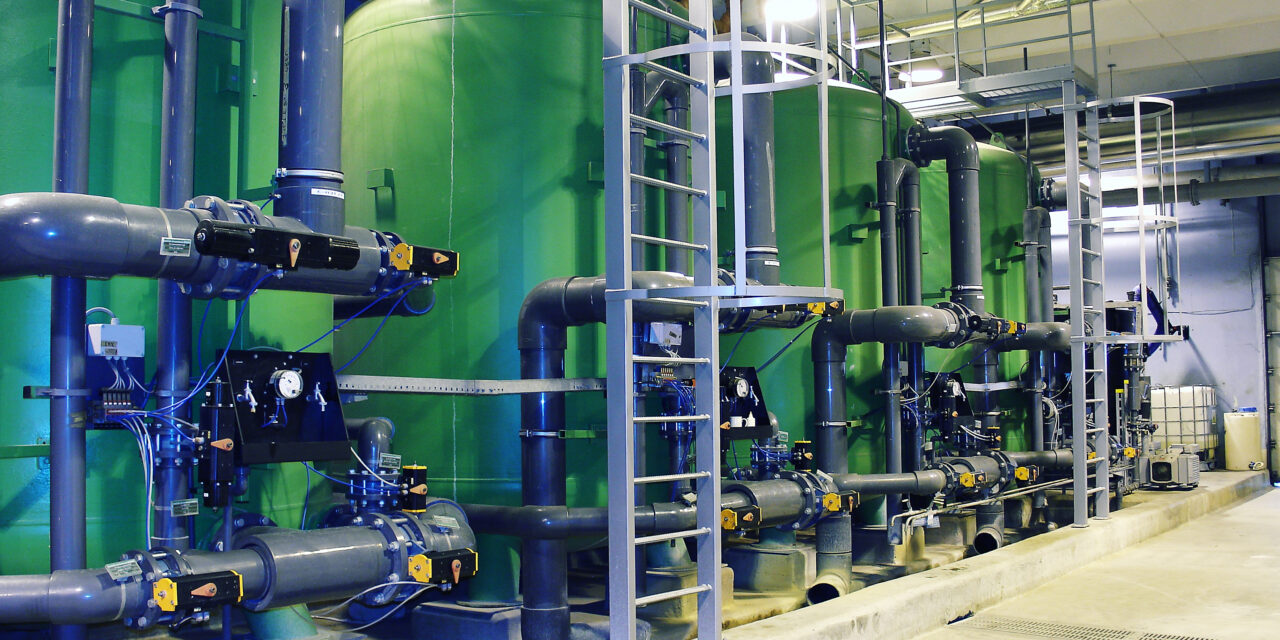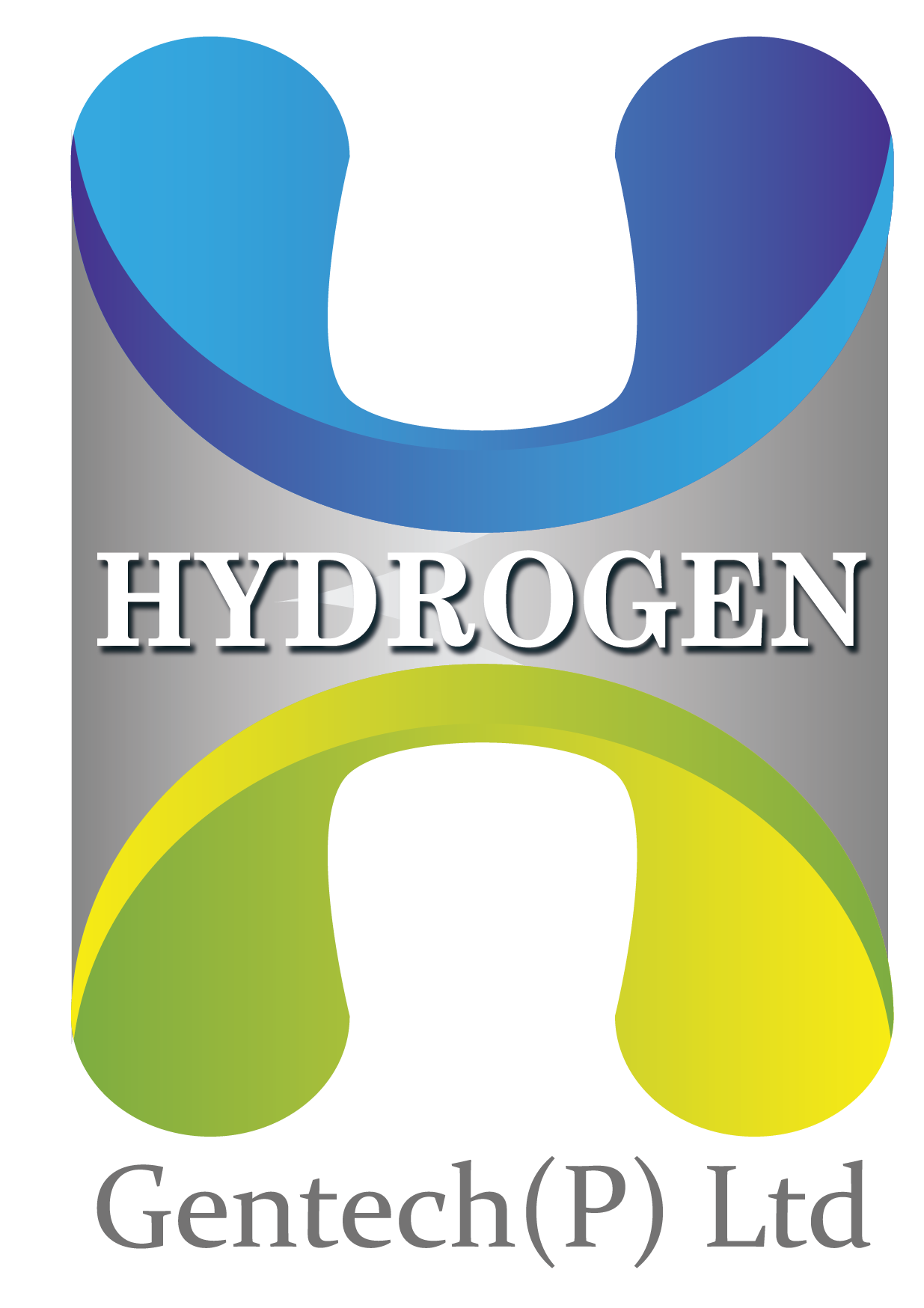Hydrogen Purification & Recovery Plants
Introduction
Hydrogen Purification and Recovery Plants are crucial in ensuring the efficiency and energy conservation in various industries, including chemical manufacturing, metal production, and electronics.
Two of the most common technologies used in these plants are Pressure Swing Adsorption (PSA) and Temperature Swing Adsorption (TSA).
Hydrogen Purification is an important aspect in the field of Hydrogen usage. The raw materials and processes used for obtaining hydrogen are sometimes very raw and crude. This generates hydrogen with low purity. To make it usable, this hydrogen needs to be purified from the impurities of its natural form. Thus, Hydrogen Purification systems become important.
Hydrogen Recovery systems are very crucial to utilise the hydrogen and its energy that is still present in the waste gases, flue gases, byproduct gases, which are otherwise just vented into the environment or combusted again, thus wasting the energy and hence the resources.
PSA technology involves passing hydrogen gas through an adsorbent material that selectively adsorbs impurities like carbon monoxide, carbon dioxide, and water vapor. The adsorbent material is then regenerated by reducing the pressure, releasing the impurities, and producing pure hydrogen.
Both PSA and TSA technologies are efficient and effective in purifying hydrogen gas, with PSA being more commonly used in industrial applications due to its higher efficiency and lower operating costs.
Hydrogen purification and recovery plants are critical for ensuring the purity and quality of hydrogen gas used in various applications. As hydrogen continues to gain popularity as a clean energy source, the development and optimization of these technologies will play a crucial role in the widespread adoption of hydrogen as an energy source.
The Promoters of Hydrogen Gentech Private Limited (HGPL) hold expertise and experience of more than 25 years in designing & manufacturing Hydrogen Purification & Recovery Plants through PSA technology.
Hydrogen Gentech Private Limited (HGPL) offers Hydrogen Purification & Recovery Plants on EPC / Turnkey Basis.
- Hydrogen Purification Plant
- Hydrogen Recovery Plant

Hydrogen Purification is an important aspect in the field of Hydrogen usage. The raw materials and processes used for obtaining hydrogen are sometimes raw and crude. This generates hydrogen with low purity. To make it usable, this hydrogen needs to be purified from the impurities of its natural form. Thus, Hydrogen Purification systems become important.
Hydrogen from any stream with a mixture of gases can be purified up to 99.999% (based on various factors).
A Hydrogen Purification plant that can be offered lies in the range of flow of 2 Nm3/h to 500 Nm3/h.
A-grade quality adsorbents and catalysts from world-class suppliers of European and Japanese origin are used.
With a PLC-based control panel for ensuring safety and fully automatic operations while meeting international standards.
Some of these units (e.g H2 Deoxo dryer units ) can be designed as no-purge loss systems having the ability to attain maximum H2 recovery efficiency.
The adsorbing columns are self-regenerated within the system, hence offering continuous operations.
Applications of Hydrogen Gas
Steel & Metal Processing
It is often used in annealing stainless-steel alloys, magnetic steel alloys, sintering and copper brazing.
Hydrogen gas also acts as a reducing agent in processing metallic ores, an important application in metallurgy and industries requiring pure metals.
Hydrogen is mixed with inert gases to obtain a reducing atmosphere, which is required for many applications in the metallurgical industry, such as heat-treating steel and welding.
Hydrogen gas also acts as a bonding agent in the process of Galvanizing, which also given steel its shiny nature.
Food & Drugs
Hydrogen is used in Pharmaceutical Drug industry for various reactions. Hydrogen being the lightest element is capable of forming single bond easily with any element.
Hence each chain of Organic or Inorganic chemical can take various forms when reacted with Hydrogen by forming different chains and bonds.
Edible Oils
The largest scale application of hydrogen is HYDROGENATION. The hydrogenation process converts the unsaturated oil into saturated oil.
The purpose is to raise the melting point, increase the oxidation and heat stability of the oil. This process also improves the color, taste, and flavor of the oil.
Typical vegetable oils are derived from polyunsaturated fatty acids (containing more than one carbon-carbon double bonds). Their partial hydrogenation reduces most but not all, of these carbon-carbon double bonds.
These hardened fats are then used generally in combination for the formulation and processing of vegetable ghee (vanaspati).
Chemicals & Pharmaceuticals
Hydrogen is used in large quantities as a raw material in the chemical synthesis of various chemicals of industrial use…like ammonia, hydrochloric acid, methanol, hydrogen peroxide, polymers, and solvents.
In Pharmaceuticals, Hydrogen is mainly used in Hydrogenation reaction for many products besides other applications.
Hydrogenation is also followed in chemicals industry in order to get various new chemicals (organic and inorganic).
Hydrocarbons chain is altered by addition of Hydrogen hence giving rise to different types of chemicals.
Refinery & Petrochemical
In refineries, it is used to remove the sulfur that is contained in crude oil as well as to convert heavy crude to lighter, easier to refine, and more marketable products.
The petrochemical industry uses hydrogen gas to process common fossil fuels, upgrading them to purer forms.
Petrochemical methods involving hydrogen include hydrodesulphurization, hydro cracking, and hydrodealkylation.
Float Glass
In order to allow the irregularities in the glass to even out, the glass is held in a controlled atmosphere with a ratio of approximately 90% N2; : 10% H2.
To produce sheets of flawless glazing for windows, doors, etc., a continuous ribbon of glass is “floated” on a bed of tin. The hydrogen in the controlled atmosphere acts as a scavenging agent to ensure an oxygen-free environment, since molten tin is highly sensitive to oxidation.
Power Industry
Being the lightest gas, it has good dispersing properties. Hence it is used for turbine cooling in power generators.
Hydrogen is being considered as a replacement for today’s fossil fuels because it is abundant, efficient, and unlike other alternatives, it offers the potential to be renewable and it produces no emissions.
It can be utilized as the energy carrier for generating electrical power with hydrogen fuel cells and hydrogen combustion engines.
Many fuel cells utilized today for distributed power generation require integration with a fuel processor to produce a hydrogen-rich gas from a hydrocarbon-based fuel such as natural gas or propane.
Electronics and Semi-Conductors
Hydrogen is used as carrier gas in semiconductor processes, especially for silicon deposition or crystal growing.
And as a scavenger gas in atmosphere soldering as well as for annealing copper films.
The use of forming gases (that is H2 diluted in nitrogen) allows virtually a complete elimination of oxygen and its inconveniences in medium to high temperature processes.
Meteorology
In meteorological applications, hydrogen is used as a lift gas where helium is unavailable or prohibitively expensive.
Solar & New Energy Sources
Mobility: FCEV (Fuel Cell electric Vehicles)
Hydrogen is now considered as the next generation source of energy and clean. Hydrogen Fuelcell electric Vehicles (Cars, Buses, Trucks, ships, trains) use compressed Hydrogen Gas with oxygen from air to generate electrical power for engine while emitting only pure water. Hydrogen in mobility application is being considered as superior long-term alternative to battery powered vehicles in case its cost of generation is optimized and hydrogen fueling infrastructure and transportation is established in efficient manner in near future.
SOLAR:
Used in solar manufacturing for cutting and edging out of rough surfaces on the cells.

Hydrogen Recovery systems are very crucial to utilise the hydrogen and its energy that is still present in the waste gases, flue gases, by-product gases, which are otherwise just vented into the environment or combusted again, thus wasting the energy and hence the resources.
Hydrogen can be enriched through our technology up to 90% from a mere 50%.
A mixture of unwanted gases is vented into the air as off – gas or can be recycled back to the system.
The hydrogen recovery capacity of the plant that can be offered lies in the range of flow of 100 Nm3/h and above.
With a PLC-based control panel for ensuring safety and fully automatic operations while meeting international standards.
These are PSA/TSA-based systems using the best adsorbents & catalysts from best-in-class manufacturers.
Regeneration of sieves is done within the system itself, hence ensuring automatic and continuous operations.
Applications of Hydrogen Gas
Steel & Metal Processing
It is often used in annealing stainless-steel alloys, magnetic steel alloys, sintering and copper brazing.
Hydrogen gas also acts as a reducing agent in processing metallic ores, an important application in metallurgy and industries requiring pure metals.
Hydrogen is mixed with inert gases to obtain a reducing atmosphere, which is required for many applications in the metallurgical industry, such as heat-treating steel and welding.
Hydrogen gas also acts as a bonding agent in the process of Galvanizing, which also given steel its shiny nature.
Food & Drugs
Hydrogen is used in Pharmaceutical Drug industry for various reactions. Hydrogen being the lightest element is capable of forming single bond easily with any element.
Hence each chain of Organic or Inorganic chemical can take various forms when reacted with Hydrogen by forming different chains and bonds.
Edible Oils
The largest scale application of hydrogen is HYDROGENATION. The hydrogenation process converts the unsaturated oil into saturated oil.
The purpose is to raise the melting point, increase the oxidation and heat stability of the oil. This process also improves the color, taste, and flavor of the oil.
Typical vegetable oils are derived from polyunsaturated fatty acids (containing more than one carbon-carbon double bonds). Their partial hydrogenation reduces most but not all, of these carbon-carbon double bonds.
These hardened fats are then used generally in combination for the formulation and processing of vegetable ghee (vanaspati).
Chemicals & Pharmaceuticals
Hydrogen is used in large quantities as a raw material in the chemical synthesis of various chemicals of industrial use…like ammonia, hydrochloric acid, methanol, hydrogen peroxide, polymers, and solvents.
In Pharmaceuticals, Hydrogen is mainly used in Hydrogenation reaction for many products besides other applications.
Hydrogenation is also followed in chemicals industry in order to get various new chemicals (organic and inorganic).
Hydrocarbons chain is altered by addition of Hydrogen hence giving rise to different types of chemicals.
Refinery & Petrochemical
In refineries, it is used to remove the sulfur that is contained in crude oil as well as to convert heavy crude to lighter, easier to refine, and more marketable products.
The petrochemical industry uses hydrogen gas to process common fossil fuels, upgrading them to purer forms.
Petrochemical methods involving hydrogen include hydrodesulphurization, hydro cracking, and hydrodealkylation.
Float Glass
In order to allow the irregularities in the glass to even out, the glass is held in a controlled atmosphere with a ratio of approximately 90% N2; : 10% H2.
To produce sheets of flawless glazing for windows, doors, etc., a continuous ribbon of glass is “floated” on a bed of tin. The hydrogen in the controlled atmosphere acts as a scavenging agent to ensure an oxygen-free environment, since molten tin is highly sensitive to oxidation.
Power Industry
Being the lightest gas, it has good dispersing properties. Hence it is used for turbine cooling in power generators.
Hydrogen is being considered as a replacement for today’s fossil fuels because it is abundant, efficient, and unlike other alternatives, it offers the potential to be renewable and it produces no emissions.
It can be utilized as the energy carrier for generating electrical power with hydrogen fuel cells and hydrogen combustion engines.
Many fuel cells utilized today for distributed power generation require integration with a fuel processor to produce a hydrogen-rich gas from a hydrocarbon-based fuel such as natural gas or propane.
Electronics and Semi-Conductors
Hydrogen is used as carrier gas in semiconductor processes, especially for silicon deposition or crystal growing.
And as a scavenger gas in atmosphere soldering as well as for annealing copper films.
The use of forming gases (that is H2 diluted in nitrogen) allows virtually a complete elimination of oxygen and its inconveniences in medium to high temperature processes.
Meteorology
In meteorological applications, hydrogen is used as a lift gas where helium is unavailable or prohibitively expensive.
Solar & New Energy Sources
Mobility: FCEV (Fuel Cell electric Vehicles)
Hydrogen is now considered as the next generation source of energy and clean. Hydrogen Fuelcell electric Vehicles (Cars, Buses, Trucks, ships, trains) use compressed Hydrogen Gas with oxygen from air to generate electrical power for engine while emitting only pure water. Hydrogen in mobility application is being considered as superior long-term alternative to battery powered vehicles in case its cost of generation is optimized and hydrogen fueling infrastructure and transportation is established in efficient manner in near future.
SOLAR:
Used in solar manufacturing for cutting and edging out of rough surfaces on the cells.

